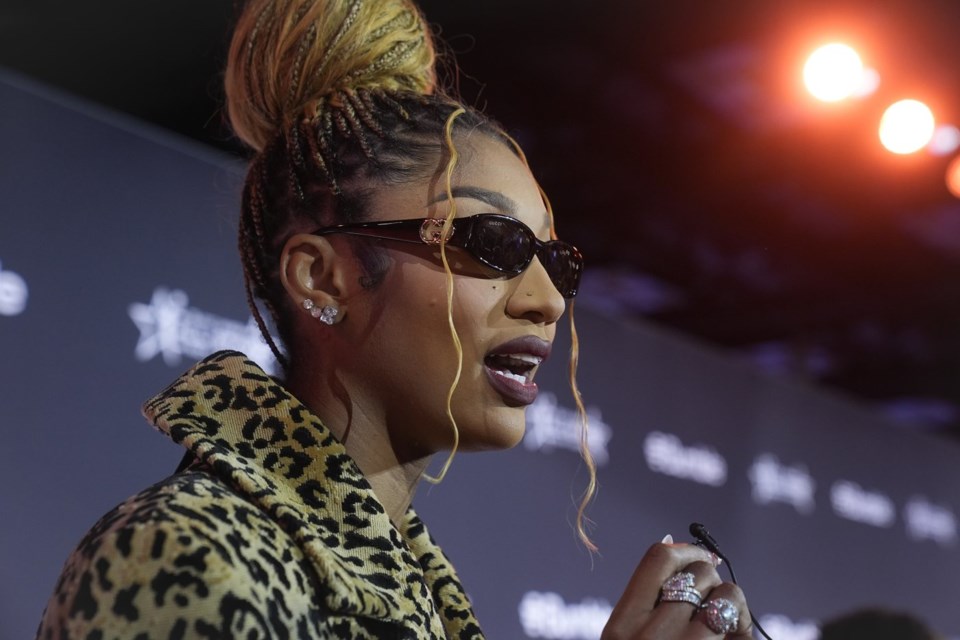INDIANAPOLIS (AP) — Chicago Sky co-owner Nadia Rawlinson knew security concerns were serious.
The Sky have physical security nearly 24 hours a day — around hotels, outside gyms, by buses and planes — but one of the final frontiers of player safety was the internet.
Earlier this month, the Sky teamed up with Moonshot to protect their players from threats and hate on social media, the first relationship of its kind in the WNBA.
“People think as athletes, we should take what comes our way,” Sky guard Ariel Atkins said. “We are human and some comments that people make are inhumane. It’s phenomenal of our organization to take care of us.”
Moonshot’s technology was created for use in counterterrorism; it's used by the U.S. government.
“It’s a great thing to implement right now,” said Sky all-star Angel Reese, who has one of the most popular social media platforms among WNBA players. “It’s really important to be able to have that (protection), especially as a woman."
What does this technology do for the Sky players?
Moonshot monitors more than 25 social media and internet platforms, including those on which players do not have personal accounts. The technology shrinks the millions of posts it looks at every day into thousands of posts that contain direct threats to the athletes.
From there, Moonshot’s team of human threat assessors, from clinical psychologists to social workers, takes over. They look through the flagged posts and report them, if necessary — whether that’s to the social media platforms themselves for removal or, in more serious and imminent cases, directly to law enforcement.
They target actionable threats to the athletes, like the release of their personal information or possible stalkers.
It’s that human involvement that Moonshot co-founder and CEO Vidhya Ramalingam said is necessary to its success.
“This is not a problem that can just be solved by technology alone,” she said. “It’s fundamentally a human problem, and this is a human partnership.”
How the partnership came to be
Rawlinson, who said her own experiences as a woman of colour have informed her understanding of the issue, knew it was something she wanted to focus on.
“With the rise in women’s sports, the rise in attention, the greater fandom, the greater investment, all of it is historic,” Rawlinson said. “But there’s a dark side to that. At some point, you just want to play the game, so the goal is to remove some of the noise that happens off the court.”
After reading about Moonshot in a tech publication a few weeks ago, Rawlinson reached out to Ramalingam about a partnership.
It was a quick connection.
“It was really clear there was a values alignment,” Ramalingam said. “Some of that stems from some of our shared experiences as women of colour in spaces where so often our voices are under-represented, and the desire to actually do something about it and not just sit there.
“For far too long, I saw women like me, people of colour, be overrepresented as targets and under-represented in the solution,” she said.
___
This story has been corrected to show that the name of the company the Chicago Sky have partnered with is Moonshot, not Moonshot Technologies.
___
AP WNBA: https://apnews.com/hub/wnba-basketball
Alyce Brown, The Associated Press



